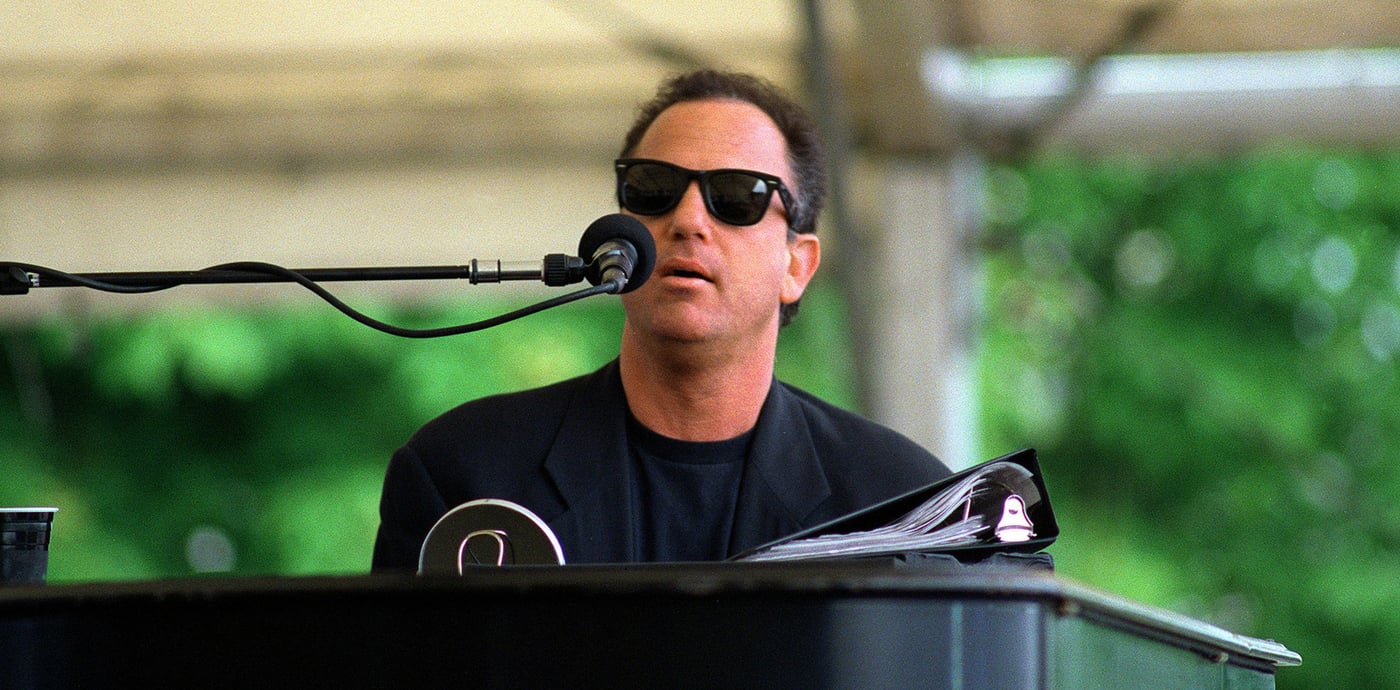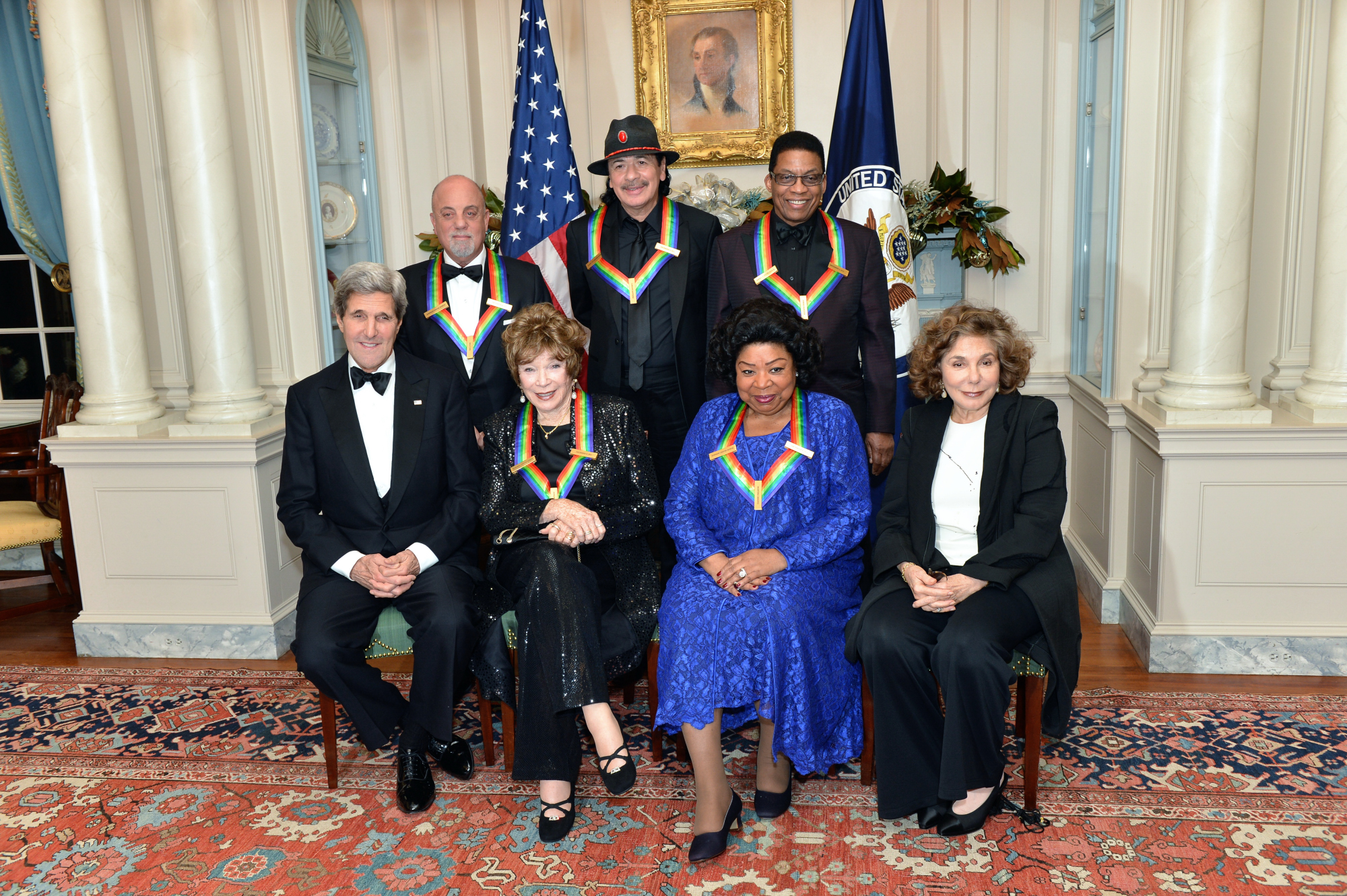
Billy Joel has long been associated with the piano thanks to his anthemic smash hit, “Piano Man.” But Joel is more than just a best-selling pop star. He’s an ardent Beethoven fan, a dedicated songwriter, and a talented entertainer. Keep reading to learn more about Billy Joel, his achievements, and what makes him a beloved pianist.

William Martin Joel was born May 9, 1949 in the Bronx, New York. His father was a pianist and his parents put him in classical music lessons at age four.
In his interviews, Joel recalls that his piano teacher was also a ballet teacher. As a result, he was a victim of teasing when neighborhood boys saw him going to his teacher’s house. Eventually, the bullying made him take up boxing lessons.
When Joel was 14, he fell in love with the music of the British Invasion and with soul music. He then started playing in bands.
Joel had several records under his belt by the time he made “Piano Man.” Unfortunately, at one point he was locked into an exploitative contract.
Billy Joel’s luck turned around when he caught the attention of Columbia Records, which freed him from his restrictive contract and helped him catapult to fame with the hit single “Piano Man.”

Billy Joel has had a lifetime love affair with our favorite instrument. His father was a pianist, he grew up in a musical family, and he was enrolled in piano lessons from the age of four.
As a child, Billy Joel loved classical music and likened it to “the sweet girl next door.” Yet he knew that he would never become a traditional concert pianist because he claims he doesn’t have the hands for it.
Then, as a teenager, Joel fell into a “passionate affair“ with a “rock ‘n’ roll girl with fishnet stockings and smeared lipstick, smoking a cigarette.”
Rock music turned out to be a formidable path for Joel. In fact, he dropped out of high school to play in piano bars and support his mother financially.
What’s the point of putting myself through writing and recording if it doesn’t mean what it’s supposed to mean out there in the world?
Billy Joel to Vulture
Today, Billy Joel plays a Steinway & Sons piano and is rediscovering his love for the classical girl next door. In 2001, Joel partnered with concert pianist Hyung-ki Joo to release Fantasies & Delusions: Music for Solo Piano, a classical album completely dedicated to the piano.
If you listen to the album, Joel’s classical influences are clear as day. Track titles include “Reverie (Villa D’Este)” and “Air (Dublinesque)” and there are turns of phrase that are not-so-subtle nods at Beethoven and Chopin.
While some have called this album derivative of the classical greats, Joel sees this critique as a compliment. He is also the first non-classical musician to be included in the Steinway Hall, where his portrait hangs alongside Franz Liszt and Sergei Rachmaninoff, something he considers a great honor.
Billy Joel considers Beethoven a “god” whose work is “exactly right.” He describes his composition style as having a “classical sensibility” and likes to incorporate elements of classicism in his songs.
But what makes Joel’s songwriting so beloved?
Perhaps it’s the storytelling. “Piano Man” isn’t just catchy; it’s a nostalgic anthem about an older man asking a piano player to play a song from his younger years. And it’s inspired by Joel’s real-life experience working in a piano bar and the people he encountered there.
Besides being a skilled songwriter, Joel is a brilliant entertainer who puts on a good show. He can imitate accents—his own New Yorker twang is instantly recognizable—and he seamlessly integrates the piano into his speeches. Many of his Q&A sessions at universities across America are freely streamable on YouTube and make for lighthearted entertainment.
A common question that gets asked in interviews with Billy Joel is, “Why haven’t you written more songs?”
Joel has released twelve albums, the last of which, Fantasies & Delusions, came out in 2001. It’s been 20 years since he’s published new music.
But Joel seems unfazed.
“I was always trying to feel like there was a real progression in my work,” he tells Vulture in a 2018 interview, “and eventually I realized I was only going to be X good. Because of that I knew I was going to beat myself for not being better. So I stopped. That’s it.”
Joel seems to value quality over quantity. After all, Mozart wrote over 40 symphonies and Beethoven (Joel’s idol) wrote only nine. “That difference doesn’t mean one guy was better than the other.” He also cites the Beatles as a role model: the Beatles wrote 12 albums; so did Billy Joel.

And no matter how many more albums Joel plans to churn out (or none at all), it seems pretty established that he’s made a legacy of himself as The Piano Man.
Feeling nostalgic? Learn “Piano Man” and make your fellow bar patrons wistful. You can download the lead sheet here.
If you know how to read chord charts, you can also find many of Billy Joel’s hits for free online.
“New York State of Mind” has frequent chord changes, but most of the chords are pretty basic. There are plenty of seventh chords, which opens up opportunities for jazz improvisation.
“Uptown Girl” is a little more challenging because it’s in E major (four sharps), but the simple, driving rhythm should make even the simplest arrangement easy to sing along to. (Note: The linked Ultimate Guitar chord charts suggest a different key as it uses a capo, but I’ve confirmed that the song is in E major 🙂 )
Sources & Further Reading
Billy Joel – Encyclopedia Britannica
Steinway & Sons exclusive interview with the piano man Billy Joel
Billy Joel – Q&A: Remember First Piano Teacher? (Hobart & William 1996)
Billy Joel – Q&A: Who Do You Like To Listen To? (Vassar College 1996)
Billy Joel – Q&A: Story Behind The Lyrics To “Piano Man”? (Harvard 1994)
In Conversation: Billy Joel – Vulture
Thirty-Three Hit Wonder – The New Yorker
The Piano Man Celebrates Love – Steinway & Sons
Who Billy Joel Writes His Songs For – Interview with 60 Minutes Australia
Billy Joel’s Piano Lesson, Part One (NPR)
The Top 5 Billy Joel Songs, Ranked By Billy Joel – The Late Show with Stephen Colbert
Charmaine Li is a Vancouver writer who has played piano for over 20 years. She holds an Associate diploma (ARCT) from the Royal Conservatory of Music and loves writing about the ways in which music—and music learning—affects the human experience. Charmaine manages The Note. Learn more about Charmaine here.


By signing up you’ll also receive our ongoing free lessons and special offers. Don’t worry, we value your privacy and you can unsubscribe at any time.
We use cookies for traffic data and advertising. Cookie Policy »